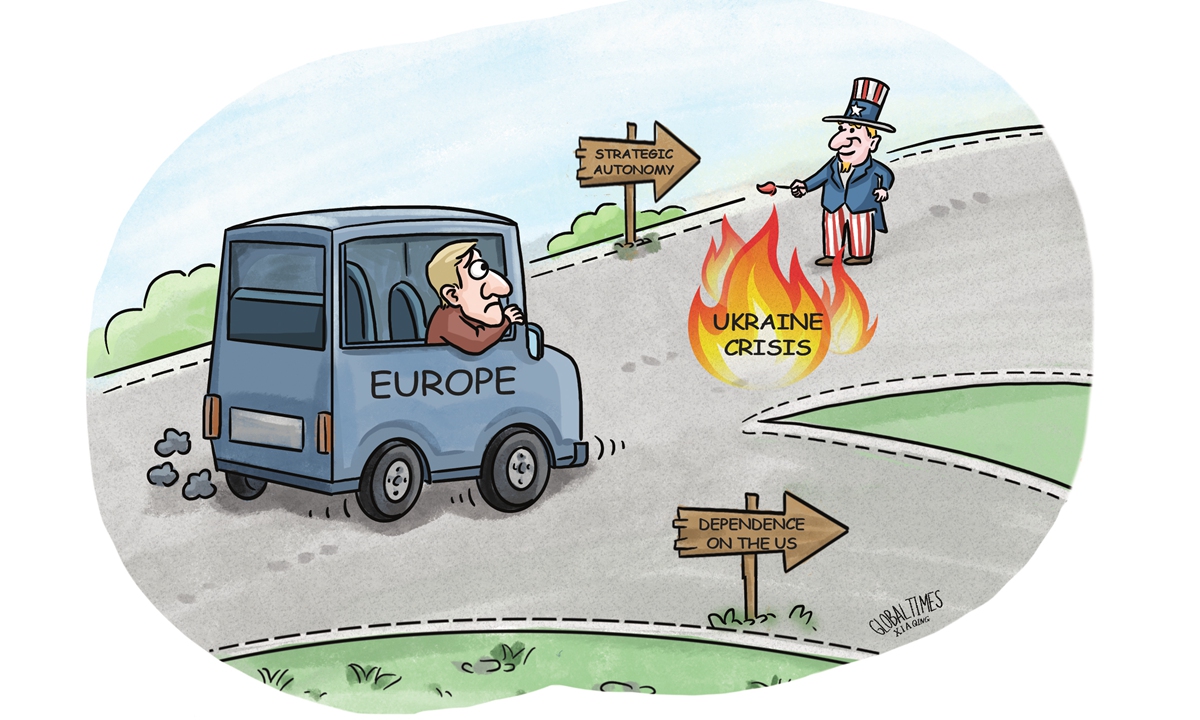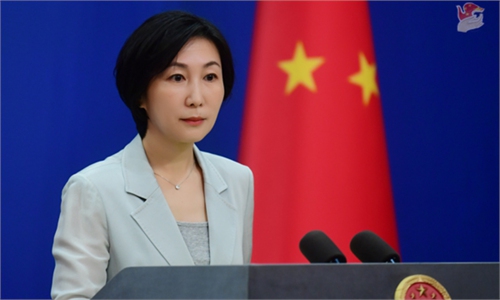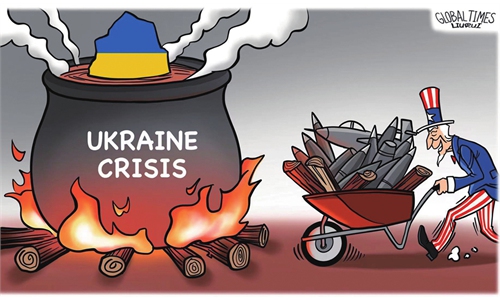
Illustration: Xia Qing/GT
Conspiracy theories are attractive because it makes the opponent mysterious and powerful. And it is, of course, very tempting to assume that the US originally conceived the whole adventure around Ukraine in order to drag its European allies into a worthless struggle with Russia. In reality, however, things are much simpler - the US' strategy in Ukraine is failing, and Washington is trying to find a way out of the impasse. But it is unlikely that attempts to shift all responsibility and costs to the Europeans will prove to be a simple and effective solution.Since US strategy here is not part of a long-term plan, the reaction to failure becomes chaotic and characterized by poorly chosen decision-making. A few days ago, the National Interest magazine published an article by two American colleagues. The piece actually strikes the reader with its savage sincerity: the authors insist that it is time for Europe to take from the US the main burden of the Ukrainian crisis. And, first of all, start buying outdated American weapons in order to hand them over to Kiev. The authors conveniently forget, of course, that American "investments" in Ukraine mean huge profits for the US military-industrial complex. In other words, Washington is not even giving money to Kiev, but to its own oligarchs.
This point of view is increasingly common in the American expert community. Two years ago, a conflict with Russia seemed a convenient way for Washington to strengthen its control over Europe and achieve a major diplomatic victory. Now, cornered by their adventurism, Americans realize the futility of trying to isolate Russia internationally or defeat it on the battlefield.
At the same time, they are beginning to recognize that for the US, the entire conflict over Ukraine is not a national security issue. This is a fairly new idea. A few months ago, Washington argued quite the opposite and insisted that a Russian success would mean a significant American defeat. This rapid shift in arguments shows that the entire US strategy is exceptionally ill-conceived. After failing in its first attempts to break through Russian defensive lines in international politics, the US is faced with the absence of an "exit strategy" from the crisis it has created.
Washington is also aware that positional gridlock is becoming dangerous for the incumbent Democratic administration. Hybrid warfare with Russia is no longer an asset, but a liability for the US election campaign. Now the attempt to shift responsibility to Europe before the US election is an effort to hand over a toxic burden.
To prove their point, US colleagues' resort to the well-known argument about military spending. They suggest that Europe is spending too little on armaments and thus needs to boost its military industry. This, of course, is hard to argue against. But it is the cause, not the effect, that counts. Europe spends little on armaments because it does not feel threatened by Russia or any other major power. The maximum that European states have expected after the Cold War is counterterrorism and peacekeeping operations. Russia has always pursued a friendly policy toward Europe, while China's interest is to create a common area of prosperity throughout Eurasia. The leaders of France and Germany, until the very last days of February 2022, tried to find grounds for a compromise, but all their efforts were blocked by the US.
In fact, the US goal of shifting the burden of conflict to the Europeans has been hampered by America's own policies for several decades. Europe's strategic autonomy, which its leaders often talk about, is exactly what Washington will try to block by all means.
European autonomy in international politics does not suit the US's interests in principle. Even a relatively independent Europe will focus more on its own interests. And this means that the opinion of the voters will have to be considered. The interests of the European population demand cooperation with China and negotiations with Russia. And this is exactly what the US needs the least. European states are well aware of this and are not going to go for catastrophic expenditures to save the reputation of their American ally.
During its dominance, the US has created a system in which no one can act independently. This is the main vulnerability of its position in international politics, but Washington does not know how to interact with other countries on an equal basis. In order to become a full-fledged member of the international community again, the US will have to reconsider its entire foreign policy philosophy.
The author is Moscow-based Valdai Club program director. opinion@globaltimes.com.cn



